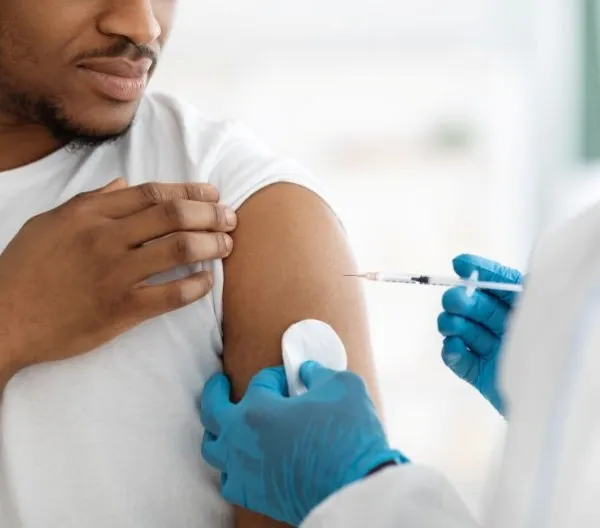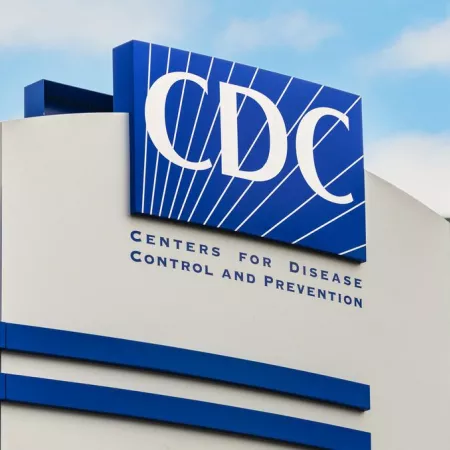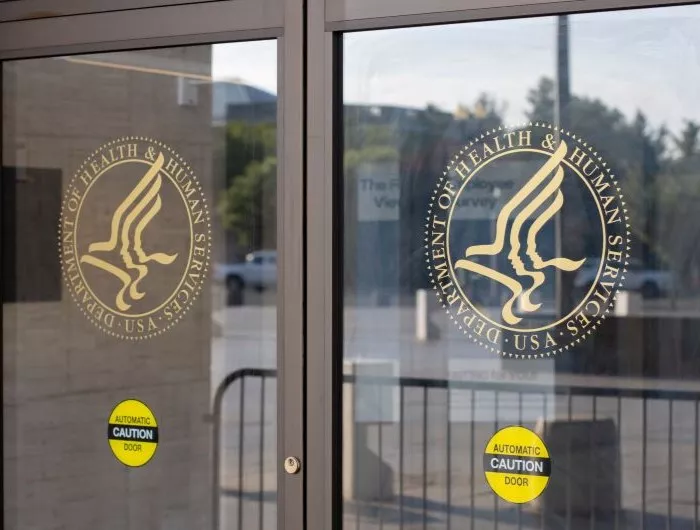The Straight Shot: Federal vaccine updates - May 21, 2025

weyo - stock.adobe.com.
The first few months of 2025 have seen many changes in federal vaccine policy and programs. This list—drawn from news reports and other information—ranks the most significant changes to vaccination policy, with brief commentary from the editors.
The Straight Shot in your inbox
Stay up-to-date on threats to vaccine safety, changes in federal policy, and vaccine availability and accessibility with The Straight Shot. Click below to get these updates directly in your inbox.
Sign up for email updates1. HHS mismanages measles response in the Southwest
As of May 15, 2025, there have been 1,024 confirmed cases of the disease, including 128 hospitalizations and three deaths; this is the largest outbreak in the US in 25 years. At his hearing at the Senate HELP committee last week, Sec. Kennedy again made a series of misstatements about the safety of the measles vaccine.
As we have previously noted, these misstatements come on top of previous errors, including endorsing unproven treatments, falsely describing the vaccines' adverse effects, preventing experts from briefing the public, and cutting grant funds for the state measles response.
Editor's note: This one will stay in the top spot on the Straight Shot until the federal response improves or the outbreak ends. – SD
2. The FDA is adding new restrictions and requirements on Covid vaccines
On May 20, Commissioner Makary and new CBER Director Prasad announced a new FDA approach to Covid vaccines in the New England Journal of Medicine. Under this approach, the FDA is limiting the indication for Covid vaccination to people over 65 and to people 12 to 64 years old with at least one medical condition that puts them at increased risk from Covid. For people under 65 without risk factors, there will be no indication, limiting access to the vaccine. For this population, the FDA is also requiring companies to conduct randomized controlled trials. The FDA has already applied these conditions to the Novavax vaccine.
Editor's notes: FDA is limiting access to Covid vaccination for millions of Americans without (1) providing data indicating problems with the vaccine's safety or effectiveness, or (2) receiving input from expert advisers, professional associations, or the public. It's a textbook case of regulatory arrogance. - PL
FDA has taken this approach unilaterally without considering the practical consequences for access. How is a 23-year-old woman with a mental health condition that puts her at higher risk from Covid supposed to prove that she is eligible for this vaccine at a crowded CVS pharmacy counter? This policy could impede access even for those people whom the FDA believes should be getting the vaccine. – SD
Rather than unilaterally and abruptly changing regulatory approval and vaccine recommendations, the administration should have shared its views–with data–with standing advisory committees, professional associations, and the public. Among the questions worth considering are (1) whether it is necessary to limit access to vaccination to study key questions; (2) whether a large randomized clinical trial is feasible in a reasonable time frame; (3) what alternative study designs might provide data to guide decisionmaking; and (4) what the consequences of this decision are for people in the affected age group who want to be vaccinated and now may lose insurance coverage. – JR
Makary and Prasad compare the agency's new approval standard with the vaccine recommendations of other countries. This is an apples-to-oranges comparison. The other countries, such as the UK and the European Union, have regulatory approval for the Covid vaccine down to 6 months of age. Their national public health agencies then set vaccination recommendations. In the US, it's the CDC that should make vaccination recommendations, after considering all relevant data–including recently published evidence indicating a substantial and significant benefit for Covid vaccination among Americans under age 65 in the 2024-2025 season. Data should matter for decisions that limit access for millions of Americans. – JS
3. HHS Secretary delays action on ACIP recommendations
At the April 16 meeting of the ACIP, the committee made recommendations for the use of a new chikungunya vaccine, RSV vaccines for older adults, and a new pentavalent meningococcal vaccine. While Secretary Kennedy, acting in the absence of a CDC director, has adopted the ACIP recommendation for a new chikungunya vaccine, he has not yet acted on the two other ACIP recommendations.
Editor’s note: Even if these recommendations are ultimately accepted by the Secretary, the delay raises questions about political interference, and more importantly, will mean a delay until people can ultimately access these FDA-approved vaccines. – SD
4. HHS hires anti-vaccine activist to review vaccine safety data
In our previous update, we highlighted the hiring of David Geier, a leading source of misinformation about vaccines. We noted that the Maryland Board of Physicians had sanctioned Geier for practicing medicine without a license. At a Senate hearing last week, Secretary Kennedy disputed this charge, claiming that the Maryland Board of Physicians was found "guilty of actual malice in fabricating" the charges of practicing medicine without a license against Mr. Geier. In fact, the charges were upheld on appeal by the Maryland Court of Special Appeals.
Secretary Kennedy also said that Geier was hired to investigate concerns about the federal vaccine safety database. This is the same database Geier had previously used for research, only to have his access revoked because of ethical violations.
Editor's note: In the early 2000s, Geier's research on vaccines and autism was carefully reviewed by a committee convened by the nonpartisan Institute of Medicine, which found it to be "uninterpretable." He has no credibility on the subject of vaccine safety. – JS
5. HHS cuts funds for vaccination in states, cuts its own vaccine staff
This past week, a federal judge ruled that the Administration could not make the $11 billion in cuts to state public health funds that we discussed in the last update. Some of these funds were used to fund vaccination clinics; others were used for outbreak monitoring and response.
Editor's note: While this legal ruling is positive, it only helps the entities that sued over this issue – 23 states and Washington, DC. – JR
6. HHS moves $500 million to study older vaccine technology favored by two appointees
HHS abruptly pulled $500 million from contracts for next-generation vaccines and is using the funds to study a type of "whole-virus" vaccine technology developed and championed by two political appointees. "Whole-virus" vaccines are 70 years old and thought by many scientists to be less effective and cause more adverse effects than newer technologies.
Editor's note: Still no clarity on this announcement. Still no explanation on why HHS noted that the "whole-virus" technology was "adaptable" for RSV, even though a whole-virus RSV vaccine was an iconic failure of vaccine development. The vaccine did not stimulate effective immunity, and when vaccinated children were exposed to the natural virus, many became ill with severe lung disease, leading to hospitalizations and deaths.– JS
The Straight Shot in your inbox
Stay up-to-date on threats to vaccine safety, changes in federal policy, and vaccine availability and accessibility with The Straight Shot. Click below to get these updates directly in your inbox.
Sign up for email updatesWhat we're watching
- The HHS Secretary may unilaterally make vaccine recommendations for the American people. News reports indicate that the HHS Secretary may–without input from external experts or the public–unilaterally change recommendations for who should receive Covid vaccines, further limiting access for children and pregnant women beyond the FDA's recent action.
- Rival views at HHS. In their New England Journal of Medicine article, Prasad and Makary state “the rapid development of multiple Covid-19 vaccines in 2020 represents a major scientific, medical, and regulatory accomplishment” and describe measles-mumps-rubella vaccination as "clearly established as safe and highly effective.” Both of these statements are at odds with the views of their boss, Secretary Kennedy.
- Advisory Committee meetings. TheFDA’s meeting of the Vaccines and Related Biologics Advisory Committee will be held on May 22 to choose Covid strains for boosters. We will be watching whether the Committee discusses the new agency approach to Covid vaccines. CDC's Advisory Committee on Immunization Practices is scheduled to meet from June 25 to June 27. We are watching whether the Committee will consider Covid vaccinations as well as proposals to add a third, early measles vaccine dose for infants in areas with spread of the virus.
- HHS and autism. On April 10, Sec. Kennedy announced in a cabinet meeting that HHS has launched a major effort to understand the causes of autism, with results expected in September. On May 7, CMS and NIH announced that they will be sharing data in order to investigate the causes of autism. We're watching whether this effort will proceed in a scientifically rigorous manner, including whether this effort will attempt to point to vaccines as the cause of autism. Additionally, the Make America Healthy Again Commission, which has held only one official meeting, is due to release an initial report on May 22 on childhood chronic illnesses, including autism. (No change from the previous update.)
- Potential CDC reorganization. Sec. Kennedy is reportedly planning to reorganize the CDC’s approach to vaccine safety. We're watching to see whether changes may undermine the current system of post-market surveillance, which includes a robust research network for assessing potential safety issues. (No change from the previous update.)
- HHS websites: We're following whether HHS updates its websites to include statements that could undermine confidence in vaccination, such as: “The decision to vaccinate is a personal one,” and “People should also be informed about the potential adverse events associated with vaccines.” (No change from the previous update.)
Have suggestions for The Straight Shot?
Email us at straightshot@cspinet.org
Tags
Topics
The authors

Peter Lurie, MD, MPH
President and Executive Director

Sarah Despres

Josh Rising, MD, MPH

Joshua M. Sharfstein, MD
The latest threats to vaccines
Off-label use of COVID-19 vaccines was once discouraged but has become common amid new guidelines
Vaccines

Inside the high-stakes battle over vaccine injury compensation, autism, and public trust
Vaccines

Do pediatricians recommend vaccines to make a profit? There’s not much money in it
Vaccines

CDC purge and Covid vaccine restrictions threaten public health
Government Accountability

Pediatricians’ association recommends COVID-19 vaccines for toddlers and some older children, breaking with CDC guidance
Vaccines

CSPI is your food & health watchdog
We envision thriving communities supported by equitable, sustainable, and science-based solutions advancing nutrition, food safety, and health.
As a nonprofit organization that takes no donations from industry or government, CSPI relies on the support of donors to continue our work in securing a safe, nutritious, and transparent food system. Every donation—no matter how small—helps CSPI continue improving food access, removing harmful additives, strengthening food safety, conducting and reviewing research, and reforming food labeling.
Please support CSPI today, and consider contributing monthly. Thank you.

How CSPI is fighting threats to public health
Safe, nutritious food. Effective medicine. Empowered consumer choice. Honest and democratic government. These key building blocks of an American way of life can only be fully realized in a system that respects evidence, transparency, and accountability—a system where leaders believe in science and work for the public interest.

